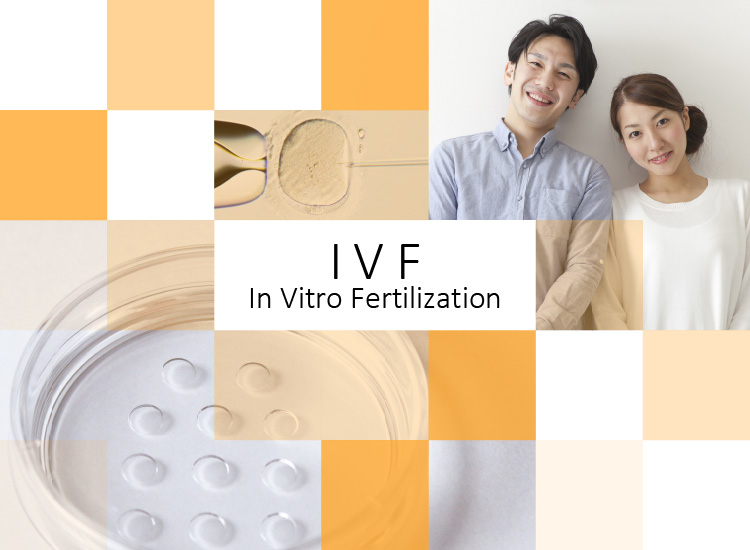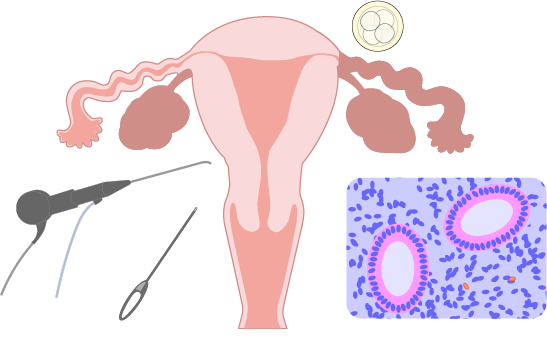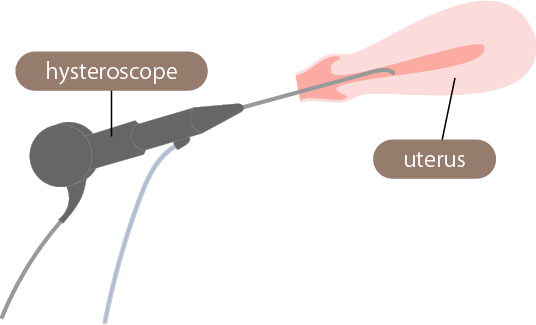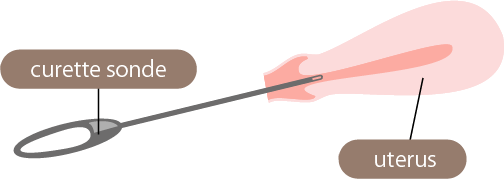Infertility treatment due to gynecological disease
Recurrent implantation failure is the condition in which a fertilized egg is obtained but pregnancy does not occur.
At our hospital, we will perform a uterine examination to check for inhibitory factors.
Implantation is
In a successful pregnancy, it is necessary for the process of ovulation, fertilization, and implantation to go on without a hitch.
First of all, the developed oocyte thrusts out of the ovary (ovulation), and then this oocyte is taken in by the fallopian tube and meets then bonds (fertilization) with the sperm in the fallopian ampulla.
As for the fertilized oocyte that has come to be from this way, while dividing it travels through the fallopian tube and is carried toward the uterus, then adheres and slips into the endometrium (mucosa of the inside of the uterus).
This is implantation.
Repeated Implantation Failure
In a successful implantation, there needs to be a good condition with the fertilized oocyte and the endometrium.
With the recent developments in In Vitro Fertilization, it has become clear that there is this so-called “Repeated Implantation Failure” condition, where a good fertilized oocyte is possible, yet it is difficult to get pregnant.
At our clinic, we are focusing on the diagnosis and treatment of the uterine factor that is affected with repeated implantation failure, and are looking for the presence or absence of endometrium polyps, endometritis, uterine cavity lumen adhesion, and submucosal fibroids.
Inspection at our clinic
Hysterofiberscope
We insert a slim camera called the hysteroscope from the entrance of the uterus, and while pouring the liquid from the tip of the camera we expand the uterine cavity, and check for the presence and absence of polyps and myoma.
Since we do a direct observation of the uterine cavity, this is a good place to diagnose small lesions that are difficult to diagnose with ultrasound.
Endometrial Biopsy
We collect a small amount of endometrium using a thin instrument called the curette probe.
By using a special pathology, we will examine whether or not there is inflammation of an abnormal endometrium.
If you wish to have an inspection at our clinic, please come and make a request during the consultation hours.
Please check
here
for clinic hours.

Special page about the current treatment for implantation failure.











